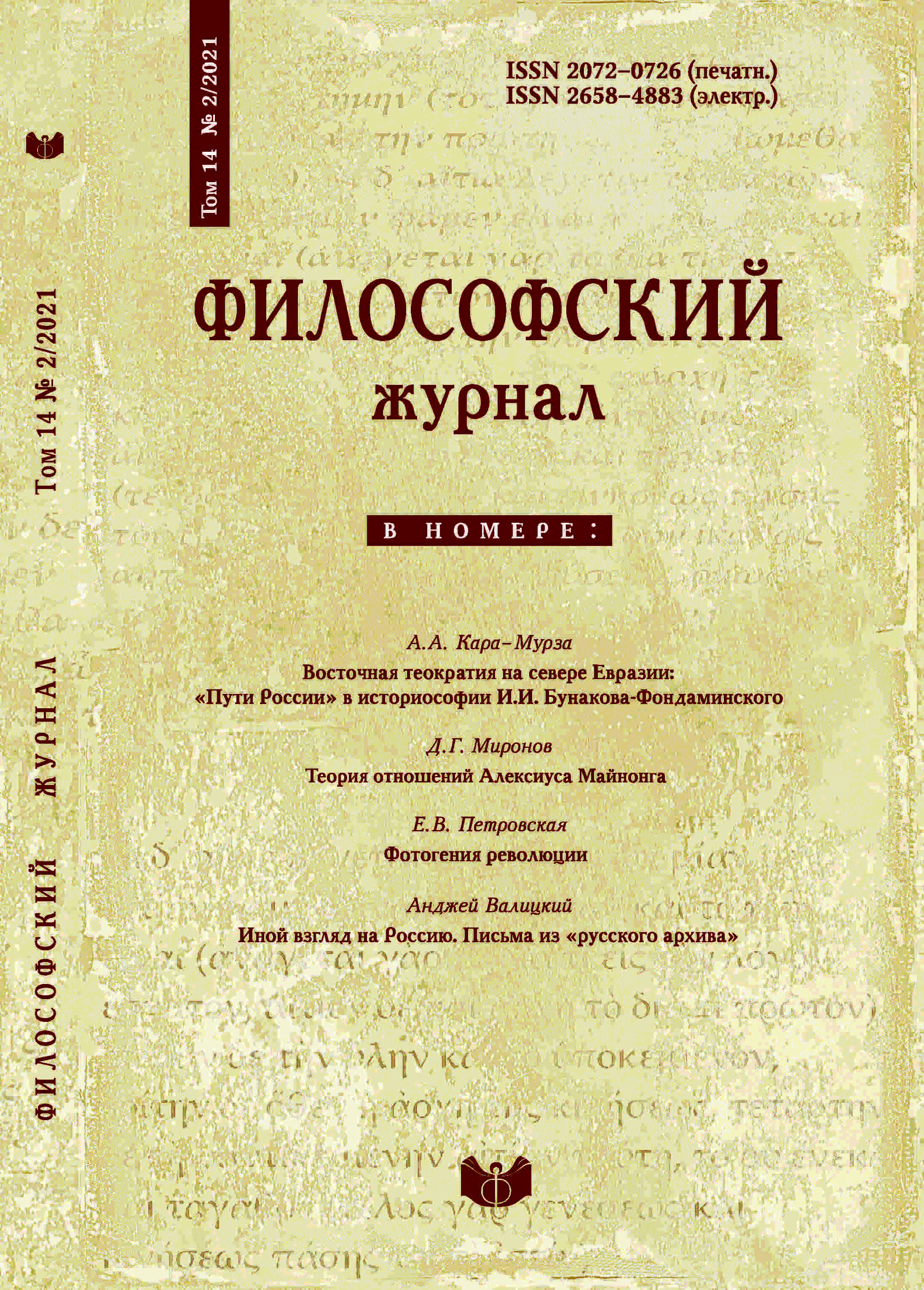Schopenhauer’s theory of ideas
DOI:
https://doi.org/10.21146/2072-0726-2021-14-2-95-110Keywords:
Schopenhauer, idea, theory of ideas, levels of the objectification of will, contemplation, ontology, aesthetics, ethicsAbstract
The article is devoted to the Arthur Schopenhauer’s contradictory doctrines of ideas. The analysis is accompanied by a discussion of historical and philosophical mysteries directly related to Schopenhauer’s doctrines of ideas. His theory of ideas is explored in its ontological and aesthetic aspects as well as in its relation to Schopenhauer’s ethics. In the article, Schopenhauer’s definition of idea is analyzed in comparison with that of Plato and Kant. Despite the fact that Schopenhauer himself claimed that he understood the notion of idea in its true, Platonic sense, the article claims that he largely departed from Plato. Since the idea is enriched by the properties of thing-in-itself, it remains a representation accessible to cognition and becomes an intermediate link between the will and the individual. The article discusses the place of ideas in Schopenhauer’s ontology. The article distinguishes and characterizes the stages of objectification of the will, which Schopenhauer calls ideas. The ambivalent status of the idea gives rise to many other historical and philosophical problems. One of them is the determination of the status of a comprehensible (intelligible) character, which Schopenhauer declares to be another direct objectification of the will, besides ideas. Further, the article investigates the process of cognizing an idea. The author discusses Schopenhauer’s aesthetic teaching in connection to the fact that Schopenhauer declares that cognition of the world of ideas is the goal of art. The article examines Schopenhauer’s classification of arts and separately problematizes the status of music. The relationship between the philosophy of art and Schopenhauer’s ethical doctrines, in which he offers two ways to salvation, is discussed. The concepts of asceticism and genius are compared. The article suggests that Schopenhauer's ethical doctrine can be presented as a complement to his doctrine of ideas. The final part of the article briefly formulates the main problems of Schopenhauer’s theory of ideas and discusses their possible solutions.






